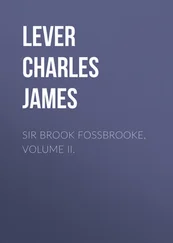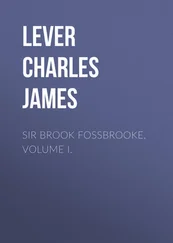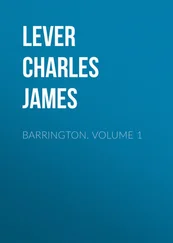Charles Lever - Tom Burke Of Ours, Volume II
Здесь есть возможность читать онлайн «Charles Lever - Tom Burke Of Ours, Volume II» — ознакомительный отрывок электронной книги совершенно бесплатно, а после прочтения отрывка купить полную версию. В некоторых случаях можно слушать аудио, скачать через торрент в формате fb2 и присутствует краткое содержание. Жанр: literature_19, foreign_antique, foreign_prose, на английском языке. Описание произведения, (предисловие) а так же отзывы посетителей доступны на портале библиотеки ЛибКат.
- Название:Tom Burke Of Ours, Volume II
- Автор:
- Жанр:
- Год:неизвестен
- ISBN:нет данных
- Рейтинг книги:3 / 5. Голосов: 1
-
Избранное:Добавить в избранное
- Отзывы:
-
Ваша оценка:
- 60
- 1
- 2
- 3
- 4
- 5
Tom Burke Of Ours, Volume II: краткое содержание, описание и аннотация
Предлагаем к чтению аннотацию, описание, краткое содержание или предисловие (зависит от того, что написал сам автор книги «Tom Burke Of Ours, Volume II»). Если вы не нашли необходимую информацию о книге — напишите в комментариях, мы постараемся отыскать её.
Tom Burke Of Ours, Volume II — читать онлайн ознакомительный отрывок
Ниже представлен текст книги, разбитый по страницам. Система сохранения места последней прочитанной страницы, позволяет с удобством читать онлайн бесплатно книгу «Tom Burke Of Ours, Volume II», без необходимости каждый раз заново искать на чём Вы остановились. Поставьте закладку, и сможете в любой момент перейти на страницу, на которой закончили чтение.
Интервал:
Закладка:
“Is this the officer from Holitsch?” said the aide-decamp of the Emperor, coming hurriedly forward. “The despatch, sir!” cried he; and the next moment hastened to the little hut which Napoleon occupied as his bivouac.
The only other person in the open space where I stood was an officer of the lancers, whose splashed and travel-stained dress seemed to say he had been employed like myself.
“I fancy, Monsieur,” said he, bowing, “that you have had a sharp ride also this morning. I have just arrived from Göding – four leagues – in less than an hour; and with all that, too late, I believe, to remedy what has occurred.”
“What, then, has happened?”
“Davoust has been tricked into an armistice, and suffered the Russians to pass the bridge. The Emperor Alexander has taken advantage of the negotiations with Austria, and got his army clear through; so, at least, it would seem. I saw Napoleon tear the despatch into fragments, and stamp his foot upon them. But here he comes.”
The words were scarcely spoken when the Emperor came rapidly up, followed by his staff. He wore a gray surtout, trimmed with dark fur, and had his hands clasped within the cuffs of the coat. His face was pale as death, and save a slight contraction of his brows, there was nothing to show any appearance of displeasure.
“Who brought the despatch from Göding?”
“I did, Sire,” said the officer.
“How are the roads, sir?”
“Much cut up, and in one place a torrent has carried away part of a bridge.”
“I knew it, – I knew it,” said he, bitterly; “it is too late. Duroc,” cried he, while the words seemed to come forth with a hissing sound, “did I not tell you, ‘Grattez le Russe, et vous trouverez le Tartare!’”
The words were graven in my memory from that hour; even yet, I can recall the very accents as when I heard them.
“And you, sir,” said he, turning suddenly towards me, “you came from General Savary. Return to him with this letter. Have you written, Duroc? Well, you’ll deliver this to General Savary at Holitsch. He may require you to proceed to Göding. Are you well mounted?”
“Yes, Sire.”
“Come, then, sir. I made you a captain yesterday; let us see if you can win your spurs to-day.”
From the time I received the despatch to that in which I was in the saddle not more than five minutes elapsed. The idea of being chosen by the Emperor himself for a service was a proud one, and I resolved to acquit myself with credit. With what concert does one’s heart beat to the free stride of a mettled charger! how does each bold plunge warm the blood and stir up the spirits! and as, careering free over hill and valley, we pass in our flight the clouds that drift above, how does the sense of freedom, realized as it is, impart a feeling of ecstasy to our minds! Our thoughts, revelling on the wayward liberty our course suggests, rise free and untrammelled from the doubts and cares of every-day life.
Onward I went, and soon the old mill came in sight, rearing its ruined head amid the black desolation of the plain. I could not resist the impulse to see what had become of De Beauvais; and leading my horse into the kitchen, I hastened up the stairs and through the rooms. But all were deserted; the little chamber lay open, the granary too; but no one was there.
With a mind relieved, in a great measure, from anxiety, I remounted and continued my way; and soon entered the dark woods of Holitsch. The château and demesne were a private estate of the Emperor Francis, and once formed a favorite resort of Joseph the Second in his hunting excursions. The château itself was a large, irregular mass of building, but still, with all its incongruity of architecture, not devoid of picturesque effect, – and the older portion of it was even handsome. While I stood in front of a long terrace, on which several windows opened from a gallery that ran along one side of the château, I was somewhat surprised that no guard was to be seen, nor even a single sentinel on duty. I dismounted, and leading my horse, approached the avenue that led up between a double range of statues to the door. An old man, dressed in the slouched hat and light blue jacket of a Bohemian peasant, was busily engaged in wrapping matting around some shrubs, to protect them from the frost. A little boy – his second self in costume – stood beside him with his pruning-knife, and stared at me with a kind of stupid wonder as I approached. With some difficulty I made out from the old man that the Emperor occupied a smaller building called the Kaiser-Lust, about half a league distant in the forest, having given strict orders that no one was to approach the château nor its immediate grounds. It was his favorite retreat, and perhaps he did not wish it should be associated in his mind with a period of such misfortune. The old peasant continued his occupation while he spoke, never lifting his head from his work, and seeming all absorbed in the necessity of what he was engaged in. As I inquired the nearest road to the imperial quarters, he employed me to assist him for a moment in his task by holding one end of the matting, with which he was now about to envelop a marble statue of Maria Theresa.
I could not refuse a request so naturally proffered; and while I did so, a little wicket opened at a short distance off, and a tall man, in a gray surtout and a plain cocked hat without a feather, came forward. He held a riding-whip in his hand, and seemed, from his splashed equipment, to have just descended from the saddle.
“Well, Fritz,” said he, “I hope the frost has done us no mischief?”
The old gardener turned round at the words, and, touching his hat respectfully, continued his work, while he replied, —
“No, Mein Herr; it was but a white hoar, and everything has escaped well.”
“And whom have you got here for an assistant, may I ask?” said he, pointing to me, whom he now saw for the first time.
As the question was asked in German, although I understood it I left the reply to the gardener.
“God knows!” said the old fellow, in a tone of easy indifference; “I think he must be a soldier of some sort.”
The other smiled at the remark, and, turning towards me, said, in French, —
“You are, perhaps, unaware, sir, being a stranger, that it is the Emperor of Austria’s desire this château should not be intruded on.”
“My offending, sir,” interrupted I, “was purely accidental. I am the bearer of despatches for General Savary; and having stopped to inquire from this honest man – ”
“The general has taken his departure for Göding,” he broke in, without paying further attention to my explanation.
“For Goding! and may I ask what distance that may be?”
“Scarcely a league, if you can hit upon the right path; the road lies yonder, where you see that dead fir-tree.”
“I thank you, sir,” said I, touching my hat; “and must now ask my friend here to release me, – my orders are of moment.”
“You may find some difficulty in the wood, after all,” said he; “I ‘ll send my groom part of the way with you.”
Before I could proffer my thanks suitably for such an unexpected politeness, he had disappeared in the garden through which he entered a few minutes before.
“I say, my worthy friend, tell me the name of that gentleman; he’s one of the Emperor’s staff, if I mistake not. I ‘m certain I ‘ve seen the face before.”
“If you had,” said the old fellow, laughing, “you could scarcely forget him; old Frantzerl is just the same these twenty years.”
“Whom did you say?”
Before he could reply, the other was at my side.
“Now, sir,” said he, “he will conduct you to the highroad. I wish you a good journey.”
These words were uttered in a tone somewhat more haughty than his previous ones; and contenting myself with a civil acknowledgment of his attention, I bowed and returned to my horse, which the little peasant child had been holding.
Читать дальшеИнтервал:
Закладка:
Похожие книги на «Tom Burke Of Ours, Volume II»
Представляем Вашему вниманию похожие книги на «Tom Burke Of Ours, Volume II» списком для выбора. Мы отобрали схожую по названию и смыслу литературу в надежде предоставить читателям больше вариантов отыскать новые, интересные, ещё непрочитанные произведения.
Обсуждение, отзывы о книге «Tom Burke Of Ours, Volume II» и просто собственные мнения читателей. Оставьте ваши комментарии, напишите, что Вы думаете о произведении, его смысле или главных героях. Укажите что конкретно понравилось, а что нет, и почему Вы так считаете.












